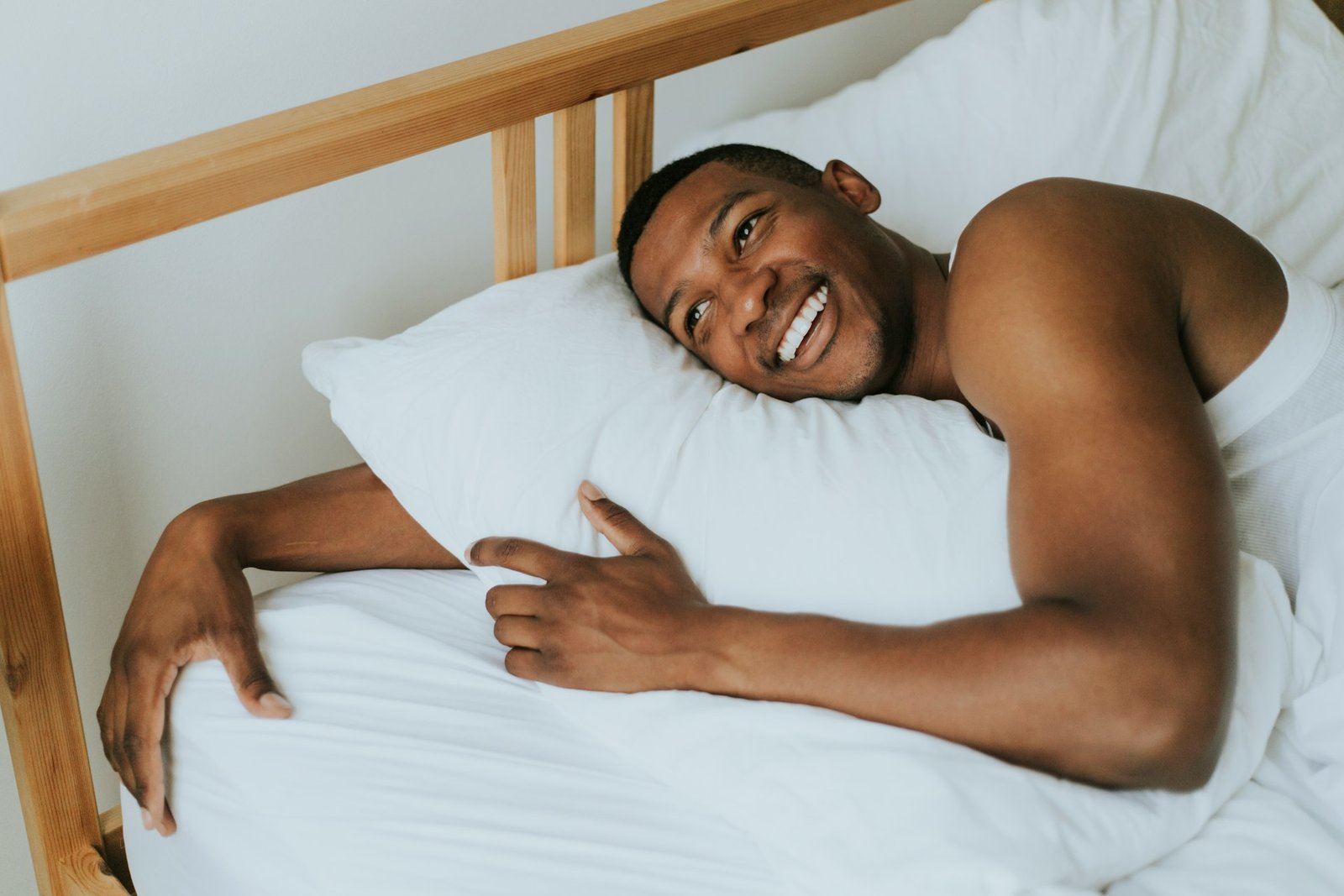When you’re dealing with anxiety, the last thing you need is trouble sleeping. Still, that’s exactly what many people face. Your mind won’t shut off, you toss and turn, and before you know it, you’re running on fumes. Sleep isn’t just about rest. It’s about recovery. And when sleep gets thrown off, anxiety starts to creep in even more. It’s a cycle that’s hard to break.
In Portland and across Oregon, many people are managing both anxiety and poor sleep. These two often go hand in hand, making each other worse. Since anxiety thrives on imbalance, disrupted sleep makes it harder for the body and mind to reset. If you’ve noticed that your anxiety feels sharper after a rough night, you’re not imagining it. Let’s take a closer look at how these issues connect.
The Connection Between Sleep and Anxiety
Sleep is more than just downtime. It helps the brain reset, store memories, and process emotions. Without it, everything feels heavier. Small stresses feel massive and daily tasks can seem overwhelming. When your body doesn’t get the break it needs, it stays tense and alert, which is exactly the state where anxiety grows.
One thing that tends to happen with poor sleep is an increase in anxious thoughts the next day. Many people describe feeling jumpy, overwhelmed, or even physically on edge after minimal rest. And since anxiety itself can make it hard to slow things down at night, people get stuck in a frustrating loop.
Here’s how that loop usually plays out:
– You’re anxious during the day and can’t turn off your thoughts when it’s time for bed.
– That racing mind keeps you from falling asleep or wakes you in the middle of the night.
– You wake up irritable and completely drained.
– Your low energy leaves you skipping activities that relieve stress, like walking or calling a friend.
– As pressure builds, anxiety spikes again—and the cycle restarts.
Picture someone in Portland who’s working full-time and taking night classes. They lie in bed replaying deadlines, emails, and worries about the next day. This alertness might seem productive, but it blocks full relaxation. The next day, their stress load feels even heavier, and restful sleep feels out of reach again.
Stress is a shared trigger for both anxiety and sleep issues. The more strain you feel at work, school, or home, the more your sleep suffers. And over time, that messes with how well you can deal with emotions, problem-solve, or connect with people.
Lack of sleep pushes the body into survival mode. Heart rate goes up. Cortisol levels rise. Muscles stay tight. These symptoms look and feel just like anxiety. That overlap can make it harder to know if you’re tired or truly anxious, which adds even more stress.
But recognizing this pattern gives you a way out. To feel better, it’s important to care for both anxiety and sleep.
Common Sleep Problems That Exacerbate Anxiety
If you’re facing sleep issues, certain conditions can make anxiety feel even worse. Here are some that often show up together.
Insomnia is one of the most common sleep disorders. It includes trouble falling asleep or staying asleep. This means losing hours of rest, which adds extra time for anxious thoughts to build. When someone with anxiety lies awake, it’s likely their stress gets louder and their coping skills shrink.
Sleep apnea causes breathing to stop and start during sleep. These interruptions lead to frequent waking. That not only disrupts deep rest but keeps the body in a constant state of alert. The experience of gasping awake or feeling unrested affects both mental and physical stability. Many people report more intense anxiety the next day after a night filled with apnea episodes.
Restless Leg Syndrome causes discomfort in the legs and the strong urge to keep moving them. This sensation gets worse at night and interferes with relaxing into a steady sleep. Since rest never comes easily, someone ends up exhausted and edgier the next day.
What these disorders have in common is how they keep your body and brain on high alert. This alert state feeds into anxiety. When sleep and anxiety work together in this way, the cycle becomes even more difficult to break. But identifying the pattern is a solid first step to change.
Practical Tips for Improving Sleep and Reducing Anxiety
There’s no instant fix, but creating healthy sleep habits can be a real relief. Changes don’t have to be major. Even small shifts in your routine can bring progress over time.
1. Stick to a sleep schedule
Wake up and go to sleep at the same time every day, even on weekends. This trains your body’s rhythm and makes rest more predictable.
2. Create a calming bedtime routine
Choose activities that slow your mind down—like listening to music, writing in a journal, taking a warm shower, or easy stretching. Avoid anything overly stimulating right before bed.
3. Watch what you eat and drink
Avoid caffeine, nicotine, and large or spicy meals in the evening. These can keep your system too active when it’s time to wind down.
4. Turn off screens before bed
Phones, computers, and TVs give off blue light, which tricks your brain into thinking it’s still daytime. Try to shut off electronics at least an hour before sleep.
5. Try simple relaxation techniques
Breathing exercises, meditation, or guided imagery can help shift your focus away from stress. Even five minutes of quiet can help reset your system at night.
These habits may seem small, but they can ease that hard edge of anxiety and improve your rest over time.
Seeking Professional Help
Even with good habits in place, some people need extra support—and that’s okay. Working with a therapist can help when anxiety and sleep problems feel too overwhelming to manage on your own.
Therapists use different methods to explore what’s going on underneath the surface. Cognitive-behavioral therapy (CBT), for example, looks at how your thoughts affect your feelings and actions. Therapists trained in CBT can help shift patterns that make both anxiety and sleeplessness worse.
In some cases, medication may support your efforts to get better rest and manage anxiety. A mental health professional will work with you to find a treatment plan that fits your needs. Medication is not the only tool, but it can make a big difference when used carefully under guidance.
Reaching out for help is a positive move. Learning what you need to feel safe, calm, and rested can be life-changing. Treatment doesn’t have to be intimidating—it’s really about building a system that supports healing.
Finding Calm Through Better Sleep
Getting better sleep can change the way you manage stress and anxiety. You may not notice the shift overnight, but small wins add up. More rest leads to a clearer mind, better focus, and a calmer mood. When you feel grounded, it’s easier to meet life’s demands.
Whether you’re in Portland or nearby cities across Oregon, better sleep can be a key part of restoring your mental and emotional balance. Tackling sleep issues hand in hand with anxiety creates room to breathe, space to relax, and a steadier mindset to face what’s ahead.
Taking those first steps may be the beginning of real change. You don’t have to try everything at once. Progress can be slow—and still meaningful. With patience, the right tools, and support that fits your needs, peace becomes more than just a hope. It becomes something you can feel.
Finding balance between sleep and anxiety can be challenging, but guidance is available. For those in Oregon navigating these overlapping struggles, exploring anxiety treatment in Portland can be a helpful first step toward relief. At Mindful Mental and Behavioral Health PLLC, our services are thoughtfully designed to support individuals dealing with sleep-related anxiety so you can feel more grounded and rested.




